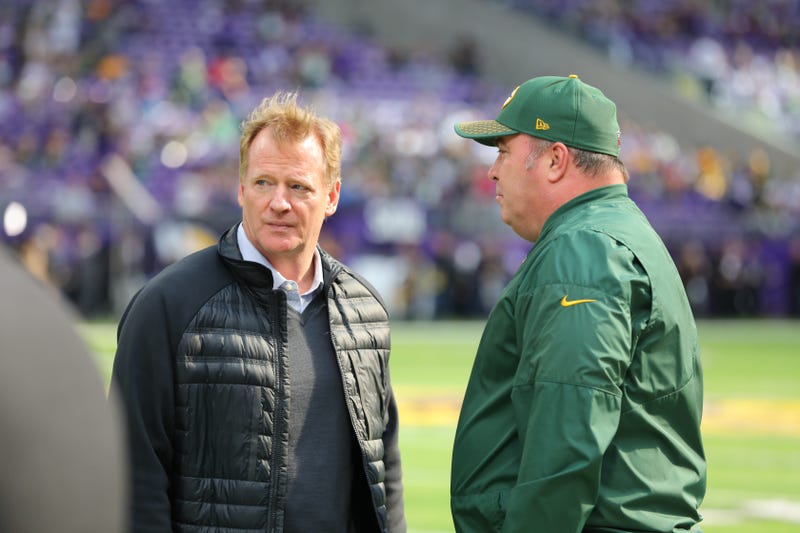
The NFL, the proverbial messy bitch that loves drama, just a week after announcing that team owners would revisit rules about player conduct during the playing of the national anthem, has now decided to throw its weight behind a criminal-justice bill.
NFL spokesman Joe Lockhart announced Monday that the NFL will endorse a bipartisan bill that reduces mandatory-minimum sentences for low-level drug offenses, cuts the “three strikes” rule (which mandates a life sentence after a third drug offense) and offers judges more flexibility in reducing sentences for some low-level crimes.
The bill is co-sponsored by Sens. Chuck Grassley (R-Iowa) and Richard Durbin (D-Ill.).
“We felt that this was an issue over the last months, as we have continued to work with our players on issues of equality and on issues of criminal-justice reform, that was surfaced for us, and we thought it was appropriate to lend our support to it,” Lockhart told reporters, according to the Washington Post.
But it’s the timing of the endorsement that’s most striking. The league is still desperately trying to move past the controversy surrounding player protests against racial injustice and police brutality during the playing of the national anthem before NFL games.
The NFL’s action also comes just a day after news broke that former San Francisco quarterback Colin Kaepernick is filing a grievance against the NFL’s owners for collusion.
Kaepernick is widely (and justly) credited for bringing social and racial issues to the fore when he began sitting—then taking a knee—during the national anthem. Since then, other players have taken up Kaepernick’s mantle, both on and off the field.
Philadelphia Eagle Malcolm Jenkins, former Baltimore Raven Anquan Boldin and Detroit Lion Glover Quin have all spoken to Congress on the issue of police and criminal-justice reform within the past year.
It’s only now, with the endorsement of the Grassley-Durbin bill, that the league itself has decided to take any action.
The Trump administration hasn’t taken any position on the bill, though it directly contradicts Attorney General Jeff Sessions’ instructions to federal prosecutors earlier this year that they pursue maximum sentences for drug offenses. In fact, despite having broad bipartisan support, the Grassley-Durbin bill has failed to reach the Senate floor. Key Senate Republicans, along with the Klu Klux Keebler himself, have opposed the bill, and Senate Leader Mitch McConnell has refused to bring the measure to the floor.
It’s not clear what impact the league’s endorsement could have on the bill’s passage, but the timing raises questions, to say the least. While individual players have called for criminal-justice and police reform, the Post reports that the league has only recently gotten involved with the legislation:
But a spokesman for Grassley added that the NFL had not coordinated with the bill’s congressional sponsors in advance of its decision. In the meantime, no other sports league has signed on. A spokesman for the NFL Players Association did not immediately return a call for comment about whether the football players’ union would also endorse the bill.
The NFL’s endorsement and its timing rings of other PR-oriented moves the league has made in response to a crisis. After video circulated of former Baltimore running back Ray Rice clocking his then-fiancee in the face, the league doubled down on punishments for players accused of domestic violence. It also kicked off a public-service campaign, “Say No More.” What it didn’t do was actually punish its players (I’m looking at you, Jerry Jones).
The Grassley-Durbin bill is a much-needed step toward reforming the criminal-justice system. Whether the NFL’s endorsement means anything in terms of pushing the bill through remains to be seen, but supporters of Kaepernick and the NFL players’ protest are right to feel conflicted. Supporting the bill is the right thing to do; the league’s motivations for this foray onto Capitol Hill are dubious, to say the least.

No comments:
Post a Comment